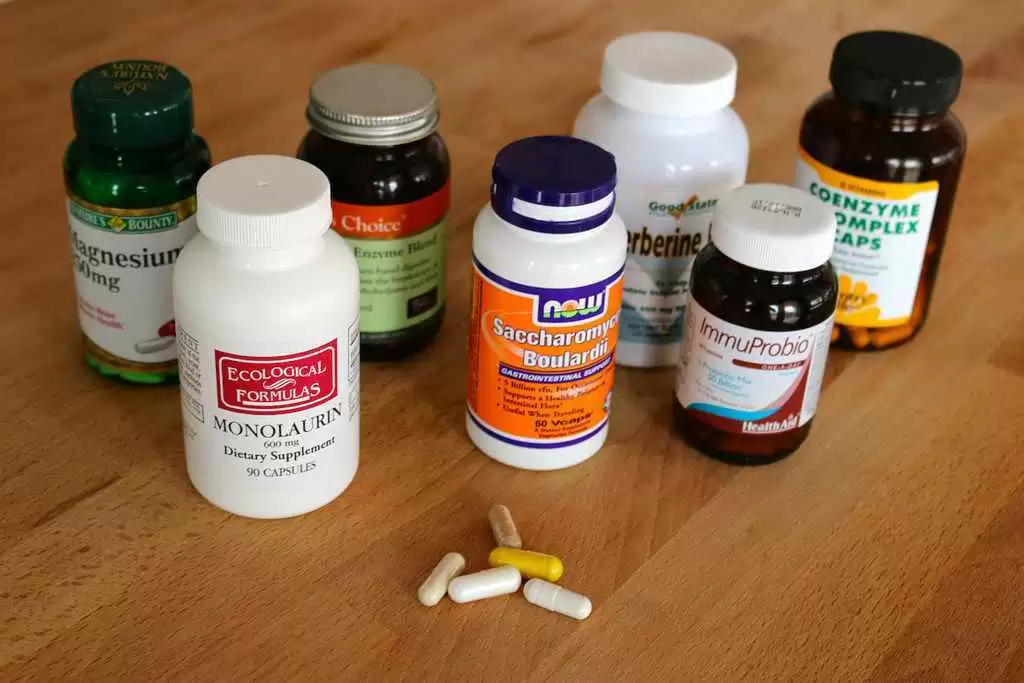
Celiac.com 06/05/2020 - Bored in a doctor’s waiting room, my husband started picking through the usual magazines. The choices were slim and the chance of reading anything useful even slimmer. He didn’t need to know how to eliminate cellulite in 7 days or the best recipe for chicken tetrazzini. He wasn’t interested in whether Jennifer Aniston was over Brad Pitt. One magazine looked somewhat respectable, maybe even educational. He flipped through and stopped at an article.
And that’s when it happened. My medical mystery began to unravel.
Celiac.com Sponsor (A12):
Twenty years of fluctuating symptoms and ill health, unexplained (or misdiagnosed) by five internists, five psychiatrists, five psychologists, four rheumatologists, four primary care physicians, two gastroenterologists, two gynecologists, two nurse practitioners, two neurologists, two family doctors, one allergist, one immunologist, four MRIs, three biopsies, three ultrasounds, two surgeries, two CT Scans, one endoscopy, one EMG, one EEG, one EKG, and too many blood tests to count, and my husband of great brilliance but no medical training suggested what no one else had.
The article was about celiac disease and gluten sensitivity. He said it sounded like me. I knew a bit about celiac disease, and I had shopped in health food stores since my teens, passing by gluten-free items for years. Sure, wheat might be bad for some folks, but surely not for me. I was a “health food nut.” I ate my whole grains by the handful: whole wheat pasta, whole wheat cookies, whole wheat bread, whole wheat cereal. The more fiber, the better. Next to me, rabbits looked fiber-deficient. Besides, I had chronic constipation (except for the month-long stretches of diarrhea), so I needed all that fiber. Whole wheat was a “health food.” Spelt, triticale, kamut, barley, steel cut oats—bring ’em on!
Despite my “healthy” diet, each year brought worsening health. (One doctor told me to expect it, as I had recently turned 30.) Fatigue and flu-like pain were the symptoms that bothered me most, not to discount the years of major depression. Night sweats and abnormal menstrual periods certainly seemed like hormonal problems, but the doctors had no answers. Nerve pain was not fun, but I got used to the stinging, burning shocks that would attack my legs randomly. If people were around, I would play it off as a bug bite or mosquito. They bought it.
My stomach problems would show up for about a year at a time and then stop on their own. The prescription drugs I was given for acid reflux and slow motility had some effect, but they didn’t address the feeling that a bony alien was pushing its way through my stomach and intestines, scratching its way through with jagged nails on its hands and feet. The meds also didn’t address the pain that spiked when I would yawn or inhale and that radiated into my right shoulder.
When the involuntary twitches and jerks in my legs, arms, and back began, I feared multiple sclerosis or Parkinson’s disease. Maybe even Huntington’s disease. Whatever it was, it couldn’t be good. The jerks happened when I was still. My legs would fly up off the recliner foot-rest, or my upper back would arch and toss me forward over my desk and keyboard. Disturbing stuff. It became more frequent over time and more severe in intensity. I wondered if an exorcism was in my future.
My body seemed to have a “tag team” approach to fighting whatever was making me sick. I remember one spring when the fatigue and muscle aches latched on. No other symptoms—just tremendous fatigue and muscle aches. About two months later, both lifted quite noticeably over a 24-hour period. I woke up the following morning pain free and with a decent amount of energy.
I also woke up with large red welts on my neck. As my fingers tried to get a sense of their shape and reach, they began to itch. And swell. Badly. I started my shower and hoped they would fade, but the hot water made them itch more, grow larger, and spread. A few days later, they covered my torso, buttocks, and thighs. At their peak, they found their way to my chin, lips, and eyelids. They itched worse than chicken pox and weren’t much prettier. The hives continued for several months, weakly responding to medication. At their end, they were written off by my doctor as idiopathic urticaria—hives for an unknown reason. I was happy to see them go.
A couple days later, sans hives, I found myself standing at my boss’s office door, whispering the reason why I needed to go home. I didn’t feel sick, and I didn’t look sick, but she agreed that ten episodes of diarrhea before noon was good enough reason to leave. The pattern continued for 6 weeks. I wasn’t surprised that it ended when the fatigue started up again.
After my husband told me about the article on celiac disease and gluten sensitivity, I started my research. Sure enough, it did sound like me. The symptoms on most of the celiac disease websites matched my own, with one exception—the involuntary jerks or “myoclonus.” This was the symptom that concerned me the most. It wasn’t as debilitating as the fatigue and flu-like pain but was equally worrisome and much scarier. I kept researching. If gluten was the culprit, not only would I have an explanation for the jerks, but I could be as good as cured—of all of it.
With a few more days of research in a scientific journal database (I wanted hard evidence) I found the connection I sought. Gluten had been found to be the cause of several neurological disorders, including myoclonus, and many other neurological disorders were proven to respond to a gluten-free diet.
I announced to my husband that I would go gluten-free for a year. Some symptoms and disorders, the research said, could take 6 months to a year to reverse. Myoclonus might not reverse ever. I scheduled an appointment with my doctor and requested the celiac disease panel of blood tests. Regardless of the results, I would go gluten-free for a year, but I wanted to be tested for celiac disease first. My husband and I had watched the diagnoses and suspected diagnoses come and go over the years. This one we felt good about.
I kept eating my gluten-laden “health foods” until the day of the blood test. I wanted to make sure those antibodies showed themselves to whoever was looking for them. It was the most giddy I’ve been for a blood test. I drove home from the lab with a large bruised lump in the crook of my left arm—a symbol, a battle scar from a long fight.
That evening, I began a strict gluten-free diet. My cupboards, refrigerator, and freezer had undergone a transformation—my bathroom drawers, too. I had contacted lipstick makers and toothpaste companies. I was ready to be gluten-free.
What I wasn’t prepared for was the dramatic change that started in a matter of days. My stomach problems were the first to respond. My intestines were quiet—simply quiet. For anyone who has struggled with gastrointestinal issues, a sense of quiet and calm in one’s torso is a blessed thing. By the end of the week, the jerks had stopped. And within one week, to my happy amazement, the fatigue was gone. Gone. I love saying it. The fatigue was (and still is) gone.
Two weeks later, free of fatigue, muscle pain, muscle weakness, night sweats, brain fog, confusion, depression, diarrhea, stomach pain, constipation, involuntary muscle jerks, stuttering, shortness of breath, dizziness, irritability, nerve pain, hives, intestinal distress, acid reflux, and bloating, I returned to my doctor to learn the results of the test. Before she could tell me the results, I described my remarkable recovery, beaming. She seemed happy for me and reached for her laptop, showing me the lab results. The lab ran the first part of the test, which was negative, and because it was negative, the other parts of the test weren’t necessary, she explained. So the lab techs stopped there. At the bottom of the page was a section for my doctor’s comments. She had written “No gluten intolerance.” She went on to say that my reaction to the gluten-free diet might be from removing the carbohydrates, sugars, and starches that came with those foods. I smiled. I hadn’t done the math, but I was reasonably sure there were carbs, sugars, and starches in my brown rice pasta, gluten-free brownies, gluten-free cookies, gluten-free cereal, brown-rice tortillas, potato-flour bread, and so on. It was clear that she was speaking from the standpoint of traditional western medicine. There was no point arguing. She could see my improvement for herself, and I could only hope she would remember it if other patients asked whether a gluten-free diet could help them.
For so many years, I held out for a diagnosis, desperate to find the cause of my ill health so that I could properly address it. Even if the news was devastating, at least I would know what was going on in my body and what I was facing. At least I would know that I was not going crazy and that it was not my imagination that something was, indeed, wrong with me. For years, I experienced the emotional crash when test after test came back negative. “You’re fine!” the doctors would say, as if that was supposed to make me fine and wipe away my symptoms.
I now see that the test results were needless and the celiac disease panel a mere formality. My dramatic and profound response to the gluten-free diet is hard evidence that I am gluten intolerant.
I had been diagnosed with irritable bowel syndrome, acid reflux, major depression, bipolar depression, fibromyalgia, chronic fatigue syndrome, and idiopathic urticaria. I have been tested for and suspected of having Sjogren’s syndrome, lupus, rheumatoid arthritis, multiple sclerosis, hypothyroidism, myasthenia gravis, Hodgkin’s lymphoma, non-Hodgkin’s lymphoma, and HIV. These are the ones I can remember, anyway. I still have some tender points in my muscles that are typical of fibromyalgia, but as long as no one pushes on these points—like a rheumatologist during an exam—I am asymptomatic for fibromyalgia.
I would bet I am not so unique and that others can relate to my experiences. Whether the medical community responds to the lifelong research that many of us have done, using ourselves as guinea pigs, is not known. The more important lesson is that for anyone who still suffers from undiagnosed symptoms, regardless of what he or she has been told by doctors and regardless of what the lab results say, adhering to a gluten-free diet may be the answer. Husband 1, Doctors zip.









Recommended Comments
Create an account or sign in to comment
You need to be a member in order to leave a comment
Create an account
Sign up for a new account in our community. It's easy!
Register a new accountSign in
Already have an account? Sign in here.
Sign In Now